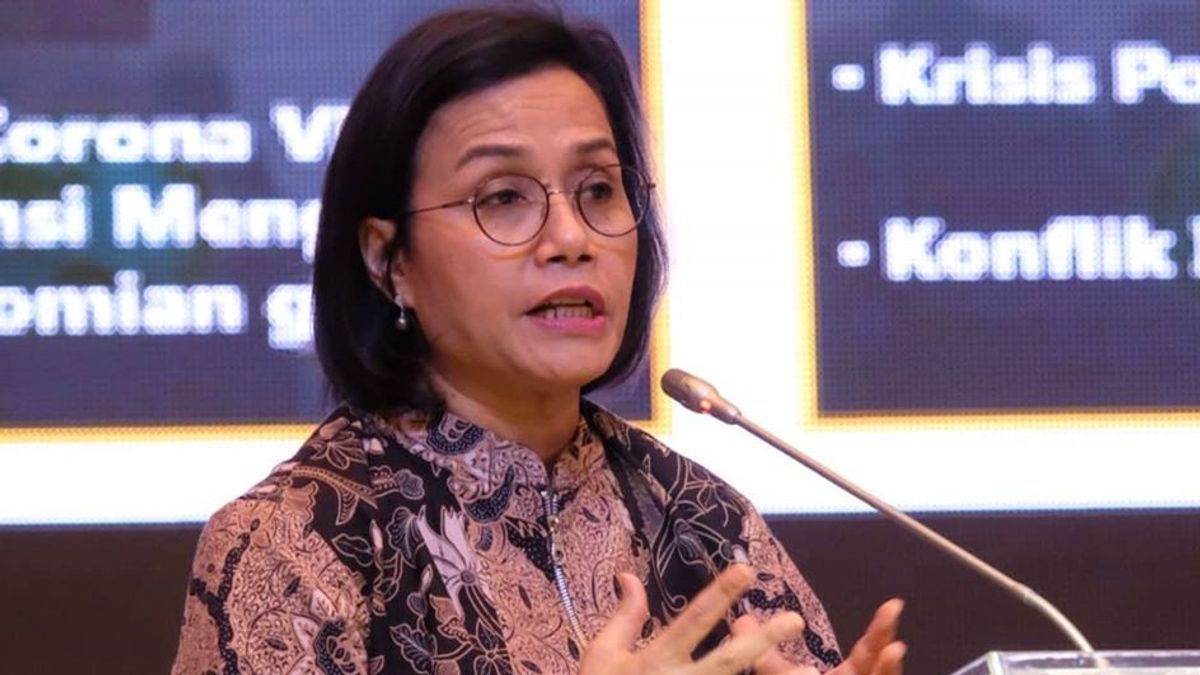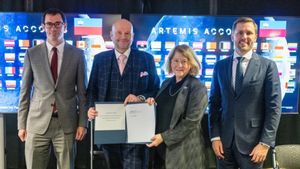JAKARTA - Minister of Finance (Menkeu) Sri Mulyani Indrawati said that his party would not provide exemption from new car tax or added tax on luxury goods (PPnBM) of up to zero percent amid the COVID-19 pandemic.
Sri explained, in a pandemic situation like today, the government prefers to provide a fiscal stimulus that can be enjoyed by all affected businesses.
"We are not considering giving a new car tax of 0 percent as conveyed by the Ministry of Industry (Kemenperin) and the automotive industry," he said, at the State Budget Conference on September Realization Period Report, Monday, October 19.
Furthermore, Sri said, support for the automotive sector industry would be provided in the form of incentives that the government has provided for the industry as a whole. He also ensured that all incentives provided by the government would be evaluated in full.
"So don't let it have a negative impact on others," he said.
For your information, the government has provided a number of incentives to companies in the form of taxation through Law Number 2 of 2020 and the Work Creation Omnibus Law which will take effect soon. One of the incentives provided is to cut corporate tax rates from 25 percent to 22 percent for the 2020 and 2021 tax years, and to 20 percent in 2021.
Previously, the Ministry of Industry (Kemenperin) continued to encourage the acceleration of relaxation of the Sales Tax on Luxury Goods (PPnBM) for new cars by 0 percent or cutting motor vehicle tax (PKB). The goal is to stimulate the market while at the same time encouraging the growth of the automotive sector which is increasingly sluggish due to the pressure of the COVID-19 pandemic.
Minister of Industry (Menperin) Agus Gumiwang Kartasasmita asked the Ministry of Finance to exempt tax on new cars. The proposal aims to help the automotive industry, which is currently growing negatively due to the COVID-19 pandemic.
"We have proposed to the Minister of Finance to relax the 0 percent new car tax until December 2020," said Agus some time ago.
Likewise, the Director General of Metal, Machinery, Transportation Equipment and Electronics at the Ministry of Industry, Taufiek Bawazier, said that the realization of PPnBM incentives for new cars is urgent and needs to be resolved immediately.
The Ministry of Industry, said Taufiek, believes that by providing tax relaxation for new cars, it can encourage the recovery of the automotive sector as well as the national economy. Given the contribution of this sector to GDP by 20 percent.
"Hopefully the Ministry of Finance (Ministry of Finance) will not issue it (PPnBM) for too long. And we ask until December (2020) only, to be raised temporarily. This is our part for recovery efforts," he said, in Webinar # 3 Road to IDF 2021 with the theme "Prospects for Economic Recovery in the National Automotive Industry Sector", Wednesday, October 14.
Taufiek said that the utilization rate of the automotive industry has continued to decline in recent times. This is in line with the decline in demand for automotive products during the COVID-19 pandemic, especially from the upper middle class.
Therefore, he said, generating demand as a driving force is the main requirement, so that the middle class can use their money to buy cars and not save them in the bank.
"The incentive relaxation is whether it is 0 percent or at least provides new efforts to open up demand for the automotive sector. It means that industrial utilization to grow the industry will grow," he said.
Taufiek said that the activities of the automotive industry have a wide multiplier effect . One of them is from the aspect of absorption of large numbers of workers and linkages with other industrial sub-sectors, including small and medium industries (IKM).
"Nearly 1.5 million people live there. And other sub-sectors, such as rubber, glass, steel, and iron, the IKM is also there. So the multiplier effect is big. So if we issue the instrument, we are actually leveraging all the entities. or elements that exist in the automotive ecosystem itself, "he said.
The English, Chinese, Japanese, Arabic, and French versions are automatically generated by the AI. So there may still be inaccuracies in translating, please always see Indonesian as our main language. (system supported by DigitalSiber.id)













